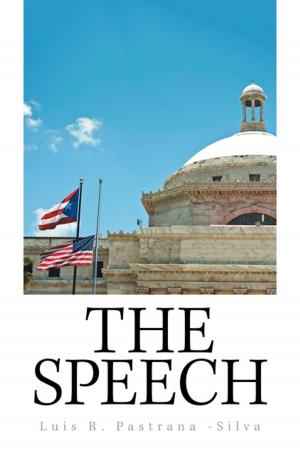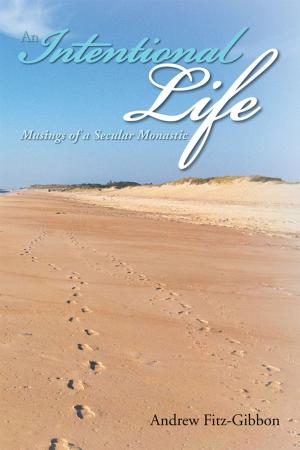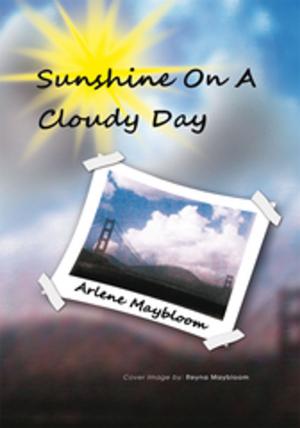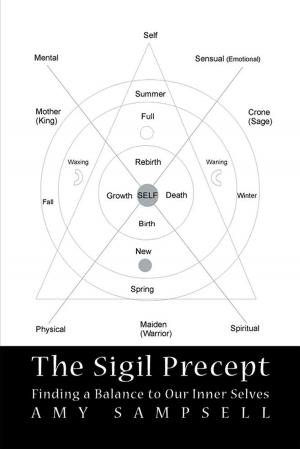| Author: | Tom Foran Clark | ISBN: | 9781503598461 |
| Publisher: | Xlibris US | Publication: | September 21, 2015 |
| Imprint: | Xlibris US | Language: | English |
| Author: | Tom Foran Clark |
| ISBN: | 9781503598461 |
| Publisher: | Xlibris US |
| Publication: | September 21, 2015 |
| Imprint: | Xlibris US |
| Language: | English |
Here, in the first book of Tom Foran Clarks four part Freewheeling series, Riding in Italy the author gives a clear nod and tip of the hat to the works of Kerouac, Pirsig, Bellow, Cervantes, and Rabelais. Here are the adventures of two young vagabonds in Europe, Pike and Emery. Pike had made a plan, the story goes. He was going to ride a bike south through Spain to Morocco, then east across North Africa to Italy. Emery proposes, I'll join you if you start in Italy and do the journey backwards" from northern Italy south to Sicily and on to Tunisia, Algeria, Morocco, and Spain. They purchase their bikes in Milan, a fogbound madhouse of a million angry honking, gnashing, sideswiping cars. While Pike was content with finding an unpretentious banged and dented, wobbly, pale blue ten-speed, Emery had the proprietor of a fancy bike shop on the Corso Garibaldi show Emery a stunning Mediterranean blue new Rossignoli bicycle that immediately sent Emery's imagination reeling. And that, indeed, would be Emery's bike the bike on which he would set out freewheeling. The author did in fact once ride a bike, with a cohort, from northern Italy south to Sicily and on to North Africa and so on -- years ago now. From that long and grueling journey sprang this finely crafted fiction. The freewheeling is not only in the events what happens in the journeys of these two young vagabonds but also in the authors exuberant telling of his tale. As traveling companions go, Emery figured, Pike really was all right. Even something of a rare bird. In some ways, he now seemed to Emery to be even princely: Pike's long brown hair and lavish tan fur trappers coat, one hand in a pocket, one foot forward the stance of a gentleman. This recognition so warmed Emery's heart, he took Pike to breakfast. They ate, then went to Santa Maria Novella. There, before his eyes, was Masaccios masterpiece, Christ on the Cross, situated in a perfectly geometric architectural space all done using only paint. It was the skeleton painted at the bottom of the marvelous picture with which Emery connected it really got to him. There were foreign words in an inscription beneath the skeleton that he knew to mean, What you are, I once was; what I am, you will become. Emery felt not only elevated, ennobled, he felt like he was rising in the air. Emery bowed, said, Thank you, Masaccio, and went out. After that, nothing was as it had been.
Here, in the first book of Tom Foran Clarks four part Freewheeling series, Riding in Italy the author gives a clear nod and tip of the hat to the works of Kerouac, Pirsig, Bellow, Cervantes, and Rabelais. Here are the adventures of two young vagabonds in Europe, Pike and Emery. Pike had made a plan, the story goes. He was going to ride a bike south through Spain to Morocco, then east across North Africa to Italy. Emery proposes, I'll join you if you start in Italy and do the journey backwards" from northern Italy south to Sicily and on to Tunisia, Algeria, Morocco, and Spain. They purchase their bikes in Milan, a fogbound madhouse of a million angry honking, gnashing, sideswiping cars. While Pike was content with finding an unpretentious banged and dented, wobbly, pale blue ten-speed, Emery had the proprietor of a fancy bike shop on the Corso Garibaldi show Emery a stunning Mediterranean blue new Rossignoli bicycle that immediately sent Emery's imagination reeling. And that, indeed, would be Emery's bike the bike on which he would set out freewheeling. The author did in fact once ride a bike, with a cohort, from northern Italy south to Sicily and on to North Africa and so on -- years ago now. From that long and grueling journey sprang this finely crafted fiction. The freewheeling is not only in the events what happens in the journeys of these two young vagabonds but also in the authors exuberant telling of his tale. As traveling companions go, Emery figured, Pike really was all right. Even something of a rare bird. In some ways, he now seemed to Emery to be even princely: Pike's long brown hair and lavish tan fur trappers coat, one hand in a pocket, one foot forward the stance of a gentleman. This recognition so warmed Emery's heart, he took Pike to breakfast. They ate, then went to Santa Maria Novella. There, before his eyes, was Masaccios masterpiece, Christ on the Cross, situated in a perfectly geometric architectural space all done using only paint. It was the skeleton painted at the bottom of the marvelous picture with which Emery connected it really got to him. There were foreign words in an inscription beneath the skeleton that he knew to mean, What you are, I once was; what I am, you will become. Emery felt not only elevated, ennobled, he felt like he was rising in the air. Emery bowed, said, Thank you, Masaccio, and went out. After that, nothing was as it had been.















